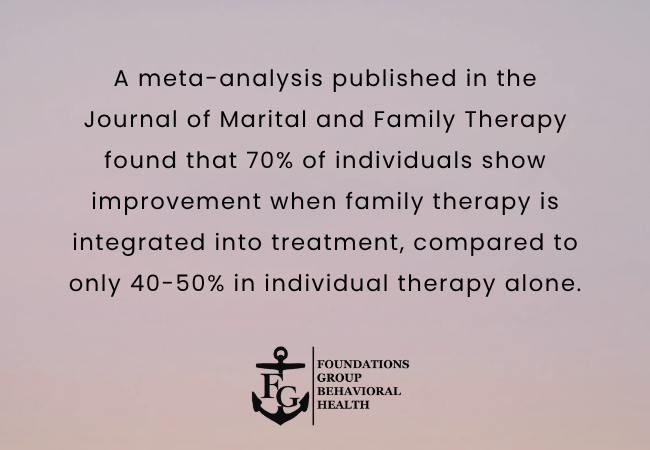Healing is rarely an isolated experience. When individuals seek mental health support, particularly through outpatient services, their personal struggles are often intertwined with family dynamics that shape emotional patterns, behavior, and coping strategies. Recognizing this, many therapists are turning to family systems theory—not as a substitute for individual work, but as a powerful complement that brings deeper clarity and more lasting change.
The concept of family systems therapy stems from the idea that each individual is best understood within the context of their family unit. Much like organs in a body, each member of a family plays a role within a larger system, and changes in one part of that system inevitably influence the others. When family systems concepts are integrated into individual outpatient mental health therapy, they allow clinicians to explore generational patterns, emotional roles, boundaries, and communication styles that often underlie presenting symptoms.
Outpatient mental health therapy focuses on treating individuals, but no one lives in a vacuum. Whether a client lives with family, is estranged from them, or has created a chosen family of close friends or a partner, these interpersonal relationships shape both problems and solutions. Bringing a family systems lens to therapy helps uncover the invisible dynamics at play—and empowers clients to transform them.
Understanding the Foundation: Family Systems Theory
Family systems theory was pioneered by psychiatrist Dr. Murray Bowen in the mid-20th century. It proposes that individuals are emotionally connected and interdependent, with patterns that often stretch across generations. These patterns affect how we handle conflict, stress, intimacy, and roles within relationships.
For example, someone who presents with anxiety may trace the roots of their symptoms to a family environment that discouraged emotional expression. Another individual might experience chronic guilt or shame linked to enmeshment—where boundaries between parent and child were blurred. Still others may find that recurring depression is tied to family expectations of perfectionism or unspoken traumas passed down.
Therapists trained in family systems approaches often look at multigenerational transmission, differentiation of self (the ability to maintain one’s sense of self while remaining emotionally connected), and emotional cutoffs. These dynamics provide context for present-day issues and are a critical element of effective Mental Health Therapy Massachusetts, especially when symptoms appear resistant to change using only surface-level approaches.
Why It Matters in Outpatient Settings
Unlike residential programs where clients are temporarily removed from their environments, outpatient treatment requires individuals to continue interacting with their everyday surroundings—including their family structures—while receiving care. This reality makes family systems work especially relevant in outpatient settings.
An individual may make progress in therapy, but if they return home to the same dysfunctional dynamics, their ability to sustain change is compromised. For example, a teenager working on self-esteem in therapy may struggle to maintain confidence if their parent constantly criticizes them. A young adult recovering from trauma may regress if their boundaries are repeatedly disrespected by family members.
By incorporating family systems principles into Outpatient Mental Health Therapy Massachusetts programs, clinicians help clients not only understand their symptoms but recognize how relational dynamics perpetuate or soothe those symptoms. Therapy becomes a space for insight, but also for strategizing how to engage differently with family members, set healthy boundaries, and rewrite long-standing patterns.
Combining Modalities for Holistic Care
Family systems therapy is rarely used in isolation. It integrates seamlessly with other evidence-based approaches. Therapists might use cognitive restructuring to help clients challenge internalized family narratives, mindfulness to reduce emotional reactivity during family interactions, or trauma-informed practices to address intergenerational pain.
In more intensive outpatient models, such as a Half Day Treatment Program Massachusetts, therapists often have the flexibility to delve deeper into these complex relational issues. With more frequent sessions and a multidisciplinary team, clients can explore their personal stories with additional support. This allows for greater continuity of care and more space to explore family history and its impact.
Group therapy, too, can complement family systems work. Hearing others’ experiences often helps clients realize they are not alone in their struggles with family expectations, boundary issues, or inherited emotional wounds. These insights create momentum for change.
When Family Systems Work Meets Resistance
Some clients are initially hesitant to discuss their families. They may fear judgment, loyalty conflicts, or emotional overwhelm. Skilled clinicians approach these conversations with compassion, emphasizing that the goal is not to blame but to understand.
In many cases, clients are surprised to learn how much relief they feel once they begin to examine their family dynamics. Understanding these patterns does not negate their individuality—it reinforces their capacity to choose something different.
Even in cases where a client is estranged from their family, exploring past dynamics can bring insight. Emotional cutoffs often suggest unresolved pain. Therapy can help clients process these emotions, grieve unmet needs, and cultivate new ways of relating in current relationships.

Generational Healing and Systemic Change
Integrating family systems work into individual therapy has ripple effects. Clients who become aware of dysfunctional patterns are better equipped to disrupt them—and that change can echo across generations. A mother who learns to set boundaries with her own parent may be more emotionally available to her child. A son who stops internalizing his father’s anger might begin to express his needs calmly and assertively, transforming how he shows up in all his relationships.
This kind of healing is at the heart of meaningful mental health recovery. It is not just about symptom reduction—it is about building relationships that are grounded in mutual respect, understanding, and emotional safety.
Tailoring Therapy to the Individual
Not every client will benefit from family systems work in the same way. Therapists must consider cultural values, current family circumstances, and each person’s readiness. For some, family involvement in therapy may be appropriate. For others, it may be safer to focus on internal work first.
The flexibility of outpatient care makes it possible to adjust therapy plans over time. Some clients begin with a focus on symptom relief, later shifting toward deeper family work once they have the tools and resilience to manage the emotional intensity. Others start therapy with clear concerns rooted in family conflict and immediately benefit from systems-informed interventions.
What matters most is that therapy respects the whole person—including the unseen dynamics that have shaped who they are.
Why Choose Us?
At Foundations Group Behavioral Health, we understand that mental health treatment is not one-size-fits-all. Our team integrates diverse therapeutic modalities to meet the unique needs of each client. We take pride in our client-centered approach, offering a supportive environment where individuals can explore their personal histories, uncover unhelpful patterns, and build new foundations for mental and emotional wellbeing.
Our clinicians are skilled in incorporating family systems work into both individual and group therapy settings. Whether you’re navigating conflict with loved ones, exploring childhood trauma, or working to improve current relationships, we’ll help you identify the deeper currents beneath your symptoms.
We are also a Behavioral Health Treatment Center Massachusetts equipped to provide compassionate care that respects your story and supports your goals.
Conclusion
True healing involves understanding the roots of emotional distress—not just trimming the visible symptoms, but addressing the systems that gave rise to them. Family systems work, when integrated thoughtfully into individual outpatient therapy, offers a powerful pathway to self-awareness, transformation, and intergenerational change.
At Foundations Group Behavioral Health, we are committed to helping you heal not just as an individual, but as a person shaped by—and capable of reshaping—your relationships. If you’re ready to begin a journey toward meaningful change, call us today at (833) 986-2594. Your story matters, and healing is possible—one insight, one step, one relationship at a time.
Frequently Asked Questions (FAQs)
What is family systems therapy and how does it relate to individual therapy?
Family systems therapy views individuals as part of a broader family unit. In individual therapy, exploring family dynamics helps identify patterns that influence current behavior and emotional responses, improving overall treatment outcomes.
Can outpatient therapy include family systems work even if the family isn’t involved?
Yes. Therapists often use family systems concepts to help clients examine their roles and relationships, even without direct family participation. This reflection can still be powerful for healing and self-awareness.
What kinds of issues can family systems therapy address in outpatient care?
This approach is effective for anxiety, depression, trauma, relationship struggles, and self-esteem issues—especially when rooted in early family experiences or generational patterns.
How does understanding family patterns improve mental health outcomes?
By uncovering how past family roles or communication styles influence current thoughts and behaviors, clients gain insight and learn healthier ways to respond in the present.
Is family systems work appropriate for all outpatient mental health clients?
While beneficial for many, it depends on the individual’s needs and goals. A qualified therapist can determine whether integrating family systems work is appropriate for each unique situation.








